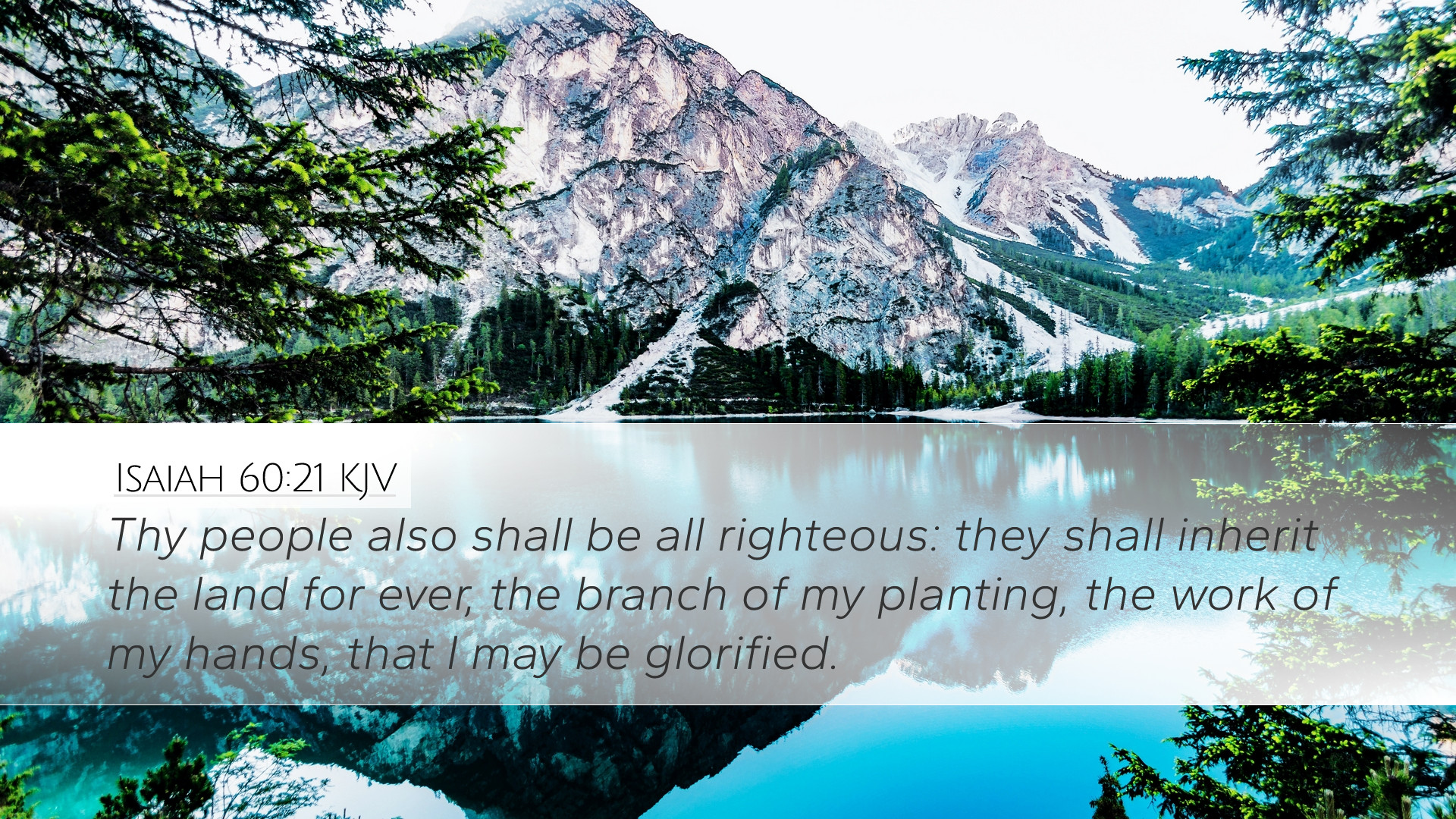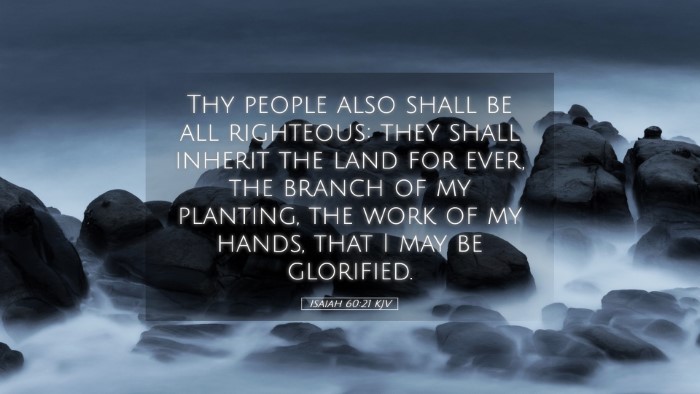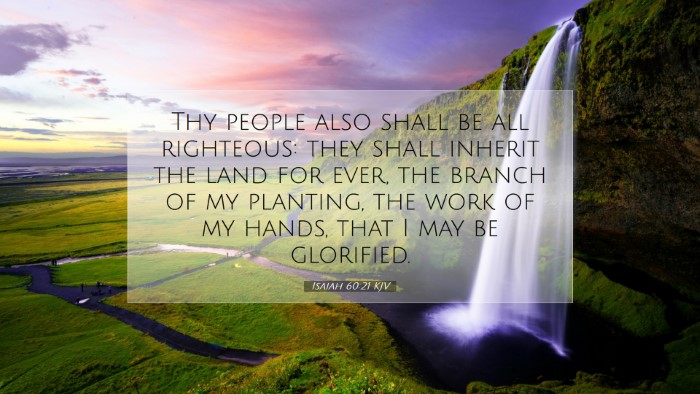Commentary on Isaiah 60:21
Isaiah 60:21 states: "Thy people also shall be all righteous: they shall inherit the land for ever, the branch of my planting, the work of my hands, that I may be glorified." This verse is a profound declaration regarding the righteousness of the people of Israel and the divine promise of their everlasting inheritance.
Contextual Overview
In the preceding chapters, the prophet Isaiah prophesies about the restoration of Israel and the glory that will come upon them. This specific verse encapsulates the essence of that restoration—a people characterized by righteousness and divine blessing.
Exegesis and Analysis
The phrase "Thy people also shall be all righteous" emphasizes the transformation of God’s people. This character trait denotes not only moral rectitude but a collective identity of holiness.
- Matthew Henry comments on the nature of righteousness, explaining that it is not merely an individual pursuit but a communal standard. The righteousness of the people implies a covenant relationship with God characterized by faithfulness and obedience.
- Albert Barnes elaborates that this promise is reminiscent of the new covenant. He draws parallels between this verse and the teachings of Christ, highlighting that righteousness is achievable through the work of the Holy Spirit in believers.
- Adam Clarke notes that this righteousness results from divine intervention. It is not of human origin but rather the work of God’s grace in the hearts of His people, pointing towards a future where God's law is written upon their hearts.
The Inheritance of the Land
The promise that they "shall inherit the land for ever" carries dual implications:
- First, it signifies the physical land—the Promised Land of Israel—as a perpetual inheritance, representing God's enduring covenant with His people.
- Second, it symbolizes spiritual inheritance, where ‘land’ is often understood as a metaphor for God’s blessings and eternal life.
The Branch of His Planting
When Isaiah refers to "the branch of my planting, the work of my hands", he invokes the imagery of God as the master gardener, cultivating His people for His glory.
- Matthew Henry emphasizes that being the "work of His hands" showcases the intimate relationship between God and His people, depicting them as His creation and craftsmanship.
- Albert Barnes stresses that this planting indicates purpose; God intends to glorify Himself through His creation and their righteousness.
- Adam Clarke adds that this “branch” refers to the Messiah, who is both the source of righteousness and an essential part of the restoration of God’s people.
Glorifying God
The concluding phrase, "that I may be glorified," brings the focus back to God’s ultimate purpose. The righteousness of the people is not an end in itself but a means to declare His glory.
- Matthew Henry interprets this as a reminder that every action of God's people should reflect His perfection and beauty, thus glorifying Him in all spheres of life.
- Albert Barnes points out that the intent is for the fame of God to spread through the righteousness exhibited by His people, drawing others to Him.
- Adam Clarke reiterates that the glory of God is revealed through the transformation and character of His people, which acts as a testament to His greatness.
Theological Implications
This verse serves as a theological anchor regarding the covenant relationship between God and humanity. It underscores several vital themes:
- Righteousness: It emphasizes the change in character that ensues from a genuine relationship with God.
- Covenant Faithfulness: The assurance that those who are God's people will inherit His promises forever.
- God's Sovereignty: It highlights that God is actively involved in the lives of His people, planting and nurturing them for His glory.
- Messianic Fulfillment: The acknowledgment of Christ as the fulfillment of God's promises and the embodiment of righteousness.
Application for Today
For pastors, theologians, and students of the Word, the implications of Isaiah 60:21 are profound. It reminds us of the calling to live righteously as a reflection of our faith in God. It challenges us to consider how our actions contribute to God's glory. Furthermore, this verse can serve as a source of encouragement, assuring us of God’s faithfulness to His promises.
Conclusion
Isaiah 60:21 encapsulates a rich tapestry of God’s promises rooted in His character—a promise of righteousness, inheritance, divine cultivation, and an ultimate purpose of glorifying Himself through His people. These insights offer a profound reminder of our identity in Christ and the mandate to live according to His nature.


